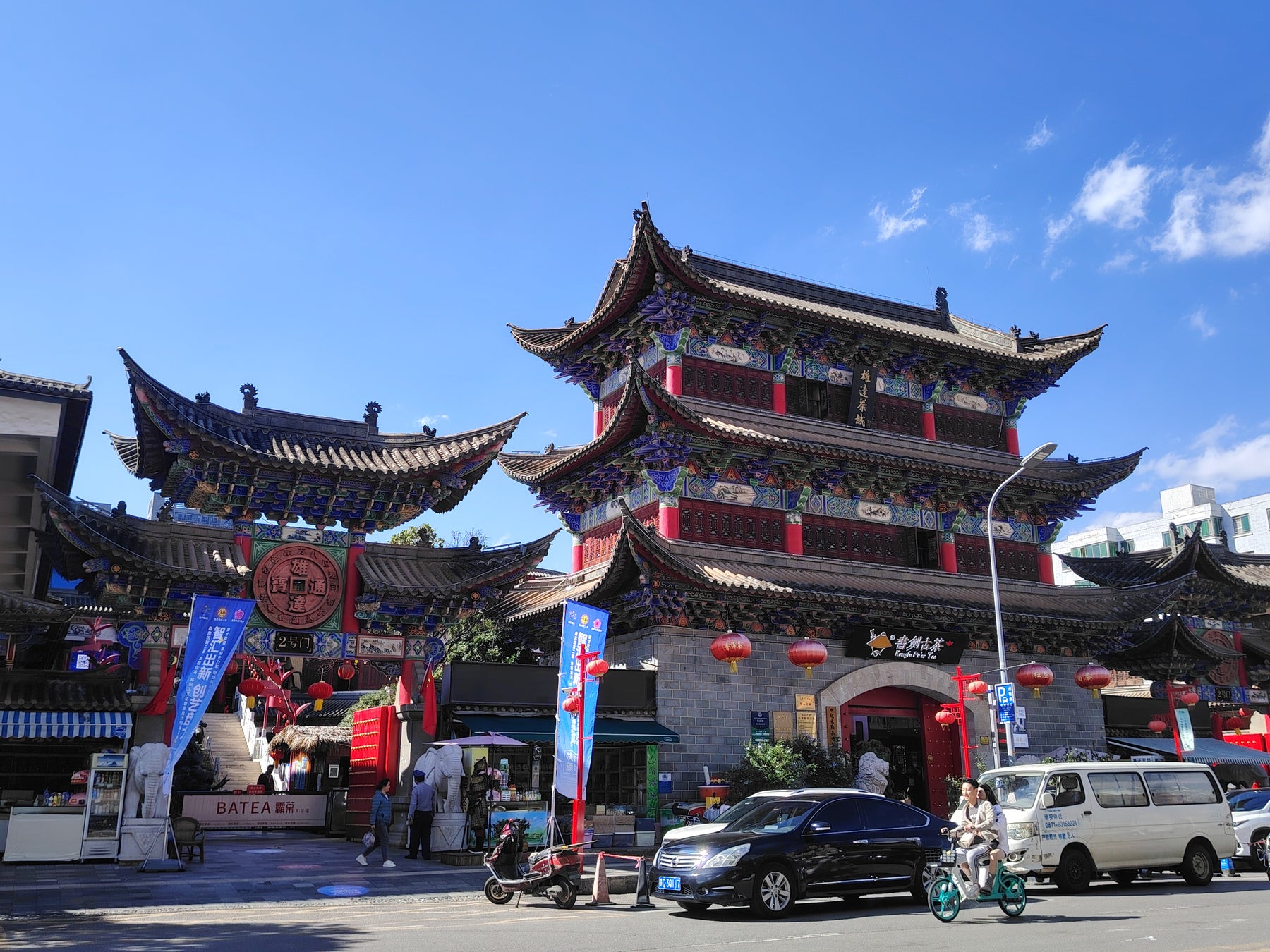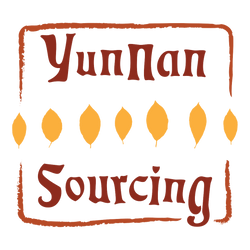
Some Pictures and a Few Stories from the Jinshi Wholesale Tea Market in Kunming
These pictures were taken on October 16th 2023. The location is the Jinshi Tea Market in Kunming. The tea market has existed since 1999 and has gradually grown bigger and taller over the years! When I first arrived there in 2004 the market was probably about 1/3 of the size it is now. The west side of the market (now known as Xiong Da) was tiny, but in 2009 the market took over and expanded into the "Curtains" wholesale market (yes, a market just for selling curtains and window dressings). The Xiong family purchased the Curtain Wholesale market and created a rather upscale tea market with traditional Chinese architecture. In the pictures you will see it's the architecturally nicer part of the tea market. I always preferred the older market which had more of the smaller and original sellers (like Hai Lang) and several other friends.
I remember in about 2007 the second level of the older market which had rooms that had acted as a kind of dormitory for owners and staff of the tea shops (but in reality had become extra tea storage for the shops in the vicinity) were converted into little tea shops. In 2009 I was the first foreigner ever to rent and operate a tea shop in Kunming and I did so on one of those second level shops. I used to sit there and drink tea and listen to jazz. I had a pretty good pair of Boston Acoustics speakers and a proper amp. Every once in awhile people would pop in and have tea with me. I actually met William of Farmer Leaf there when he was still just a teenager and just getting to know tea. I also met David from Essence of Tea before he started selling tea (yes, he was a customer of mine as well previously). I also met So Han Fan, Steven Odell, and David Lee Hoffman in the Kunming market!
One day back in 2010 I had the pleasure of meeting David Arora, who found me through a Chinese friend in the tea market. David is a well-known mycologist and author and a long long time Pu-erh tea aficionado. David took me to the dried mushroom market in Kunming and showed me the ropes. Yunnan has a huge diversity of wild mushrooms, many of which are edible.
Kunming also has another largish wholesale market in the southern part of the city called "Kangle Wholesale Tea Market." Between the Jinshi and Kangle markets you've got literally thousands of tea shops big and small, most specializing in Yunnan Pu-erh. Some represent their own brands (again big and small brand), while others simply deal in teas not produced by them, buying stocks of teas from tea factories or other sellers and re-selling them.
In Yunnan, it's estimated that there are over 2 million people involved in the tea industry (growing, processing, production and selling). I mention this as the debate over proper tea storage in the west is a huge point of contention amongst tea connoisseurs. Regardless of what you prefer, understand that Kunming is a huge hub for production, sales and storage of pu-erh tea and that over many decades an entire culture and appreciation has developed for Pu-erh tea stored in Kunming.
I remember sitting in Hai Lang's shop back in 2012 or 2013 and an older man from Guangdong was tasting one of Hai Lang's 2002 raw pu-erh productions and commented that "This isn't Pu-erh, it's too green!" Hai Lang simply told him "Get out of my shop!" I can imagine the reverse might happen if Hai Lang were to go to Guangzhou and complain "This tea tastes moldy," which is what he always said whenever I asked him to try a Guangdong stored pu-erh I was sampling myself. Usually I wouldn't tell him what it was, and just ask him to brew it. He'd get out a gaiwan (never a clay pot) for my suspect tea sample and pour hot water over it. A few seconds later he'd lift the lid of the gaiwan, smell the tea and grimacing with disgust he'd dump the tea out, stating simply "it's moldy!" To be sure, the vast majority of Kunming tea sellers would have the same dislike for Guangdong stored pu-erh tea (although Hai Lang is more direct than most).
- Scott
























Leave a comment